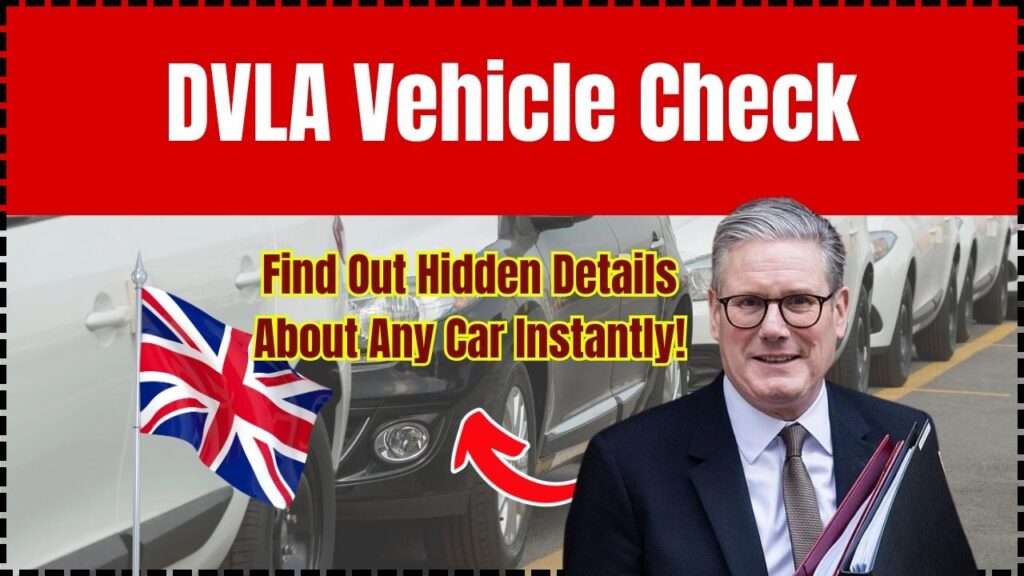
DVLA Vehicle Check: When considering the purchase of a used car, ensuring its legitimacy and roadworthiness is paramount. The Driver and Vehicle Licensing Agency (DVLA) offers a comprehensive Vehicle Check service that allows potential buyers to access vital information about any UK-registered vehicle. This service helps uncover hidden details, ensuring you make an informed decision and avoid potential pitfalls.
DVLA Vehicle Check
The DVLA Vehicle Check is an invaluable tool for anyone considering the purchase of a used car in the UK. By providing instant access to crucial vehicle details, it empowers buyers to make informed decisions and avoid potential pitfalls associated with undisclosed vehicle histories. Always complement this check with additional services for a comprehensive understanding, ensuring your investment is sound and secure.
| Aspect | Details |
|---|---|
| Service Name | DVLA Vehicle Check |
| Information Provided | Tax status, MOT history, registration details, engine specifications, CO2 emissions |
| Required Input | Vehicle registration number (number plate) |
| Access Method | Online via GOV.UK |
| Cost | Free |
| Additional Resources | askMID for insurance status, Vehicle Smart for comprehensive checks |
What Is the DVLA Vehicle Check?
The DVLA Vehicle Check is an online service provided by the UK government that enables individuals to retrieve detailed information about any vehicle registered in the UK. By simply entering the vehicle’s registration number, users can access a wealth of data, including:
- Tax Status: Confirms whether the vehicle is currently taxed or declared as off the road (SORN).
- MOT Status and History: Provides the current MOT status and detailed history, including past test dates, results, and any advisories or failures.
- Registration Details: Information on the date of first registration, year of manufacture, and the most recent logbook (V5C) issue date.
- Engine Specifications: Details such as engine size and fuel type.
- CO2 Emissions: Information on the vehicle’s environmental impact.
Why Is It Important?
Purchasing a used vehicle without adequate information can lead to unforeseen issues, including:
- Outstanding Finance: The car may have existing finance agreements, making it legally the property of a finance company.
- Previous Write-Offs: The vehicle might have been declared a total loss by an insurance company due to damage.
- Stolen Vehicles: There’s a risk the car could be reported as stolen, leading to legal complications.
- Cloned Vehicles: Some vehicles have had their identities changed to hide a dubious history.
Utilizing the DVLA Vehicle Check helps mitigate these risks by providing transparent information about the vehicle’s background.
How to Perform a DVLA Vehicle Check?
Conducting a vehicle check is straightforward:
- Visit the Official Website: Navigate to the DVLA’s vehicle information service.
- Enter the Registration Number: Input the vehicle’s number plate details.
- Review the Information: Access the comprehensive data provided about the vehicle.
For additional insights, such as insurance status, you can use the askMID service, which verifies if the vehicle is insured.
Interpreting the Results
Understanding the information retrieved is crucial:
- Tax and MOT Status: Ensure the vehicle is taxed and has a valid MOT certificate. An expired MOT may indicate neglect or potential issues.
- Registration Details: Verify that the details match the seller’s information. Discrepancies could be a red flag.
- Engine Specifications and CO2 Emissions: Confirm that these align with your expectations and needs, especially concerning fuel efficiency and environmental considerations.
Additional Checks for Comprehensive Assurance
While the DVLA Vehicle Check provides extensive information, it’s advisable to perform supplementary checks:
- Full Vehicle History Report: Services like Vehicle Smart offer in-depth reports covering aspects such as outstanding finance, write-off records, and mileage discrepancies.
- Insurance Status: Use askMID to confirm the vehicle is insured, which is essential for legal road use.
Practical Example
Imagine you’re interested in purchasing a used car with the registration number AB12 CDE. By entering this number into the DVLA Vehicle Check, you discover:
- The car’s tax is up to date.
- The MOT is valid for another six months, with no advisories on the last test.
- The vehicle was first registered in 2015 and has had two previous owners.
- The engine size and fuel type match the seller’s description.
However, upon further investigation using a full vehicle history report, you find that the car was previously written off due to flood damage but was repaired and returned to the road. This critical information might influence your decision to proceed with the purchase or negotiate the price accordingly.
£249 Driving Licence Fee? UK Learners Face Backlog – Here’s the Full Story!
MOT Check Made Easy: How to Verify Your Car’s Status Online
UK Car Tax Check: How to Verify Your Road Tax Status Instantly
Frequently Asked Questions (FAQs)
1. Is the DVLA Vehicle Check service free?
Yes, accessing basic vehicle information through the DVLA is free of charge.
2. Can I find out the previous owners’ details using this service?
No, the DVLA Vehicle Check does not provide personal information about previous owners due to privacy regulations.
3. How often is the information updated?
The DVLA database is regularly updated, but there may be slight delays. For the most current information, consider cross-referencing with additional services.
4. What should I do if the information doesn’t match the seller’s description?
Discrepancies should be addressed directly with the seller. If unresolved, it may be wise to reconsider the purchase.
5. Can I use this service for vehicles registered outside the UK?
No, the DVLA Vehicle Check only covers vehicles registered within the UK.







